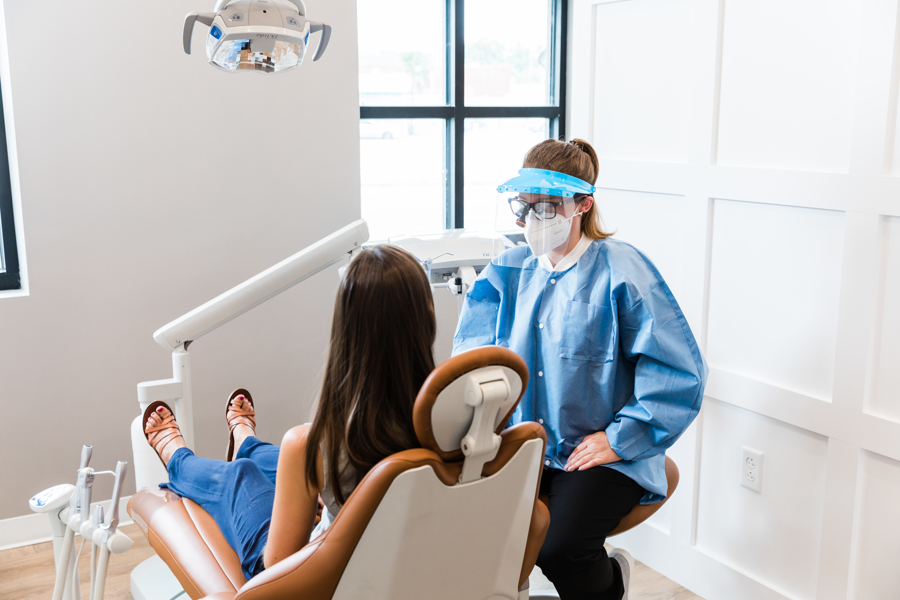A Guide to Usual Dental Problems That Call for a Dentist's Care
Toothaches, for instance, can be symptomatic of serious concerns such as tooth cavities, broken teeth, or abscesses, each calling for specific treatments like dental fillings or root canals. Impacted wisdom teeth and jaw disorders can present significant discomfort and complications.
Toothaches
Toothaches are a typical dental condition that can range from light pain to severe discomfort, commonly indicating an underlying concern that needs professional focus. This discomfort can stem from a range of sources, consisting of dental tooth cavities, fractured or fractured teeth, and dental abscesses. Each of these conditions postures significant dangers if left untreated, potentially leading to much more extreme problems.
Oral cavities, also recognized as caries, are caused by the buildup of plaque that wears down tooth enamel, leading to openings or pits in the impacted teeth. Abscesses are painful infections at the origin of a tooth or between the periodontal and a tooth, commonly resulting from severe decay or neglected dental caries.
Efficient treatment of toothaches includes dealing with the source. This may include dental fillings for tooth cavities, crowns for fractured teeth, or origin canals and antibiotics for abscesses. Very early intervention by a dental professional can stop more deterioration and reduce pain, making sure ideal dental health.
Gum Disease

The primary root cause of gum tissue illness is bacterial plaque, a sticky, anemic movie that regularly bases on teeth. Poor dental health, cigarette smoking, genetic proneness, and specific clinical conditions, such as diabetes, can exacerbate the threat of creating gum illness. Routine oral exams are essential for early detection and administration of this condition.
Therapy for periodontal disease varies from professional oral cleaning and scaling to advanced treatments like root planing and gum surgical treatment, depending upon the severity. Keeping good dental hygiene techniques, consisting of brushing two times daily, flossing, and using a disinfectant mouth wash, can considerably decrease the danger of periodontal condition and advertise much healthier gums.
Dental Caries
Cavities, also called cavities, are a typical oral condition defined by the devastation of tooth enamel because of acid-producing bacteria in the mouth. These germs prosper on sugars and starches from food and beverages, creating acids that slowly deteriorate the enamel, resulting in dental caries development.
Early-stage cavities may not reveal symptoms, however as they proceed, they can cause toothache, level of sensitivity to chilly or warm, noticeable openings or pits in the teeth, and staining. If left without treatment, tooth cavities can pass through deeper layers of the tooth, potentially causing severe pain, infection, and also tooth loss.
Protecting against tooth cavities entails a combination of excellent oral health practices and nutritional habits. Regular brushing with fluoride tooth paste, flossing, and routine oral exams are important. Dental practitioners may also suggest extra safety nets, such as fluoride therapies and oral sealants, to safeguard teeth from degeneration.
Therapy for cavities depends on their extent. Small tooth cavities can be resolved with dental fillings, which bring back the tooth's framework. A lot more sophisticated situations may require crowns and even origin canal therapy if the decay has actually gotten to the tooth's pulp. Prompt treatment by a dentist is vital to stop problems and maintain total oral health.
Impacted Wisdom Teeth
Impacted knowledge teeth are a widespread dental problem that occurs when the third molars, generally described as knowledge teeth, fail to totally emerge or line up effectively within the mouth. This problem often arises from inadequate space in the jaw or an unusual growth angle of the teeth. Influenced knowledge teeth can result in a variety of complications, consisting of infection, damages, and pain to nearby teeth.
When wisdom teeth come to be affected, they are commonly partially emerged or continue to be entirely below the gum tissue line. This partial eruption can create a pathway for microorganisms to get in the gums, causing infections that show up as swelling, pain, and even high temperature (eugene dentist). Furthermore, impacted wisdom teeth can apply stress on neighboring teeth, potentially triggering crowding or moving
A comprehensive dental exam, typically entailing X-rays, is crucial for detecting influenced wisdom teeth. Regular oral exams are a good idea to keep track of the condition and keep dental health and wellness.
Jaw Disorders
Verdict

Oral cavities, likewise recognized as caries, are triggered by the build-up of plaque that erodes tooth enamel, leading to holes or pits in the impacted teeth. Abscesses are unpleasant infections at the origin of a tooth or in why not try these out between a tooth and the periodontal, commonly resulting from severe decay or unattended cavities.
Affected knowledge teeth are a widespread dental problem that takes place when the third molars, typically referred to as knowledge teeth, stop working to fully arise or straighten properly within the mouth. Impacted wisdom teeth can lead to a range of difficulties, including damage, infection, and pain to surrounding teeth.
Additionally, affected knowledge teeth can exert Full Article stress on surrounding teeth, potentially causing crowding or changing.